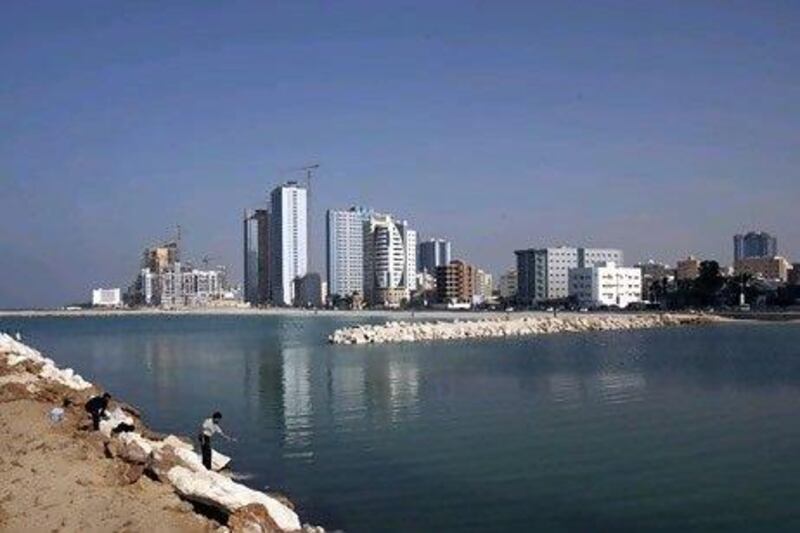Developers of a big development in Ajman have jettisoned plans to build homes for 200,000 people and will instead focus on trying to grow the emirate's fledgling tourism market.
Tourism:
Industry InsightsYour ticket to the latest news in travel. Learn More
The 540-hectare Al Zorah development was launched in 2008 and called for man-made islands, homes, hotels and shopping malls. But the development stalled in the wake of the property downturn.
The new masterplan, which is half the size of the original development, eliminates the islands and homes in favour of hotels, but the marinas and a golf course survive from the original plan. The cost of the revamped project is Dh2 billion (US$544 million).
"Today, to say I am building a city for 200,000 people, there is no market for it," said Imad Dana, the chief executive of Al Zorah Development Company. "Let's do something that will work."
Construction on the first phase, expected to include four hotels, is set to begin within six monthsand will promote Ajman as a "prime hub for the hospitality and tourism sector in the region", according to Al Zorah's promotional materials.
Although Ajman is home to several hotels, including a branch of the five-star Kempinski, the chain's first hotel in the Middle East, the emirate's tourism market is still relatively young. Ajman, renowned for its undeveloped sandy beaches and mangroves, is a 30-minute drive from Dubai International Airport.
Five hotels are scheduled to open in the next three years.
"In my view Ajman has tremendous potential, especially from the marina side," said Filippo Sona, the head of hotels and resorts in the Middle East for Colliers International, a consultancy.
Most visitors to Ajman come from other emirates, Oman and Saudi Arabia, Mr Sona said. But it is still off the radar for the broader international traveller. "It's a totally immature market," he said.
While the market for second homes in the Emirates is slow, tourism continues to grow.
The number of hotel guests in Dubai rose 11 per cent in the first nine months of the year compared with the same period last year, to 6.6 million, according to figures from the Dubai Department of Tourism and Commerce Marketing. Hotel revenue was up 19 per cent.
"There is a positive tailwind" for tourism in the region, said Chiheb ben Mahmoud, the head of the hotel advisory in the Middle East for Jones Lang LaSalle.
The overall master plan for Al Zorah is now split into five districts, including a "family friendly" cluster of six hotels and groupings of offices, retail space and some residences on the waterfront.
"The market is now looking for delivery," Mr ben Mahmoud said. "When are [the hotels] going to be delivered and how will they fit into the overall infrastructure?" To succeed, the project would need landscaping, roads and other amenities to convince visitors they were not staying in a partially completed development, he said.
Infrastructure work on the project had continued in recent years, said Mr Dana of Al Zorah, which is a joint venture between the Ajman Government and Solidere International,a developer based in Beirut.
The 8.5-kilometre road from the highway has been completed, as well as a 3km road through the centre of the project. Work on two of the four initial marinas has also been completed.
Al Zorah originally sold Dh9bn worth of residential land in the project. Those buyers have moved their investments to other parcels, Mr Dana said.
"We've consolidated lots and properties and grouped them around the city centre adjacent to the resort," he said. The first hotel operators are expected to be named in the next three to four months.
Residences comprised 60 per cent of the original plan; the new plan devotes 70 per cent to resort and leisure facilities and only 14 per cent to mixed-use and residential projects.
There are no plans to sell any homes in the near future.
"This is for later, when we really show investors that we are serious and have put money in the project," said Mr Dana.
twitter: Follow and share our breaking business news. Follow us





